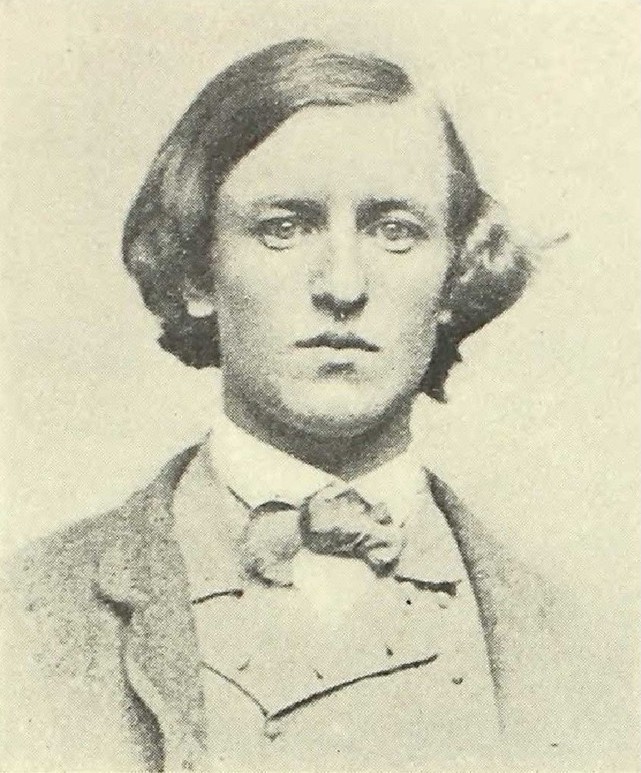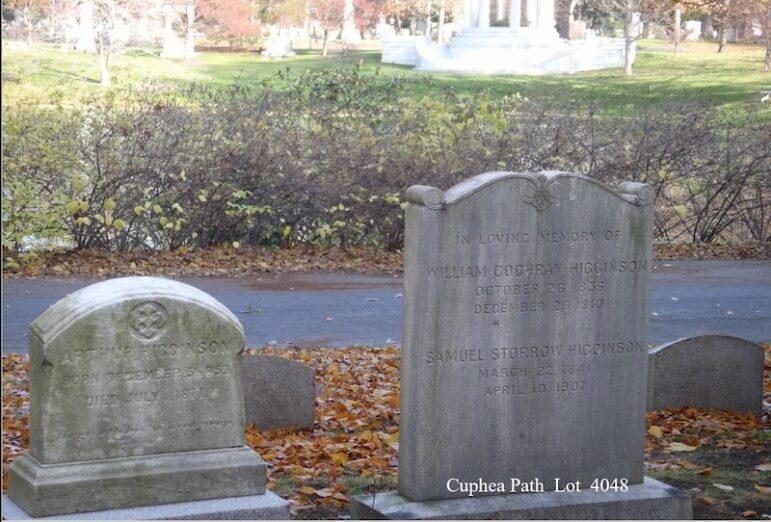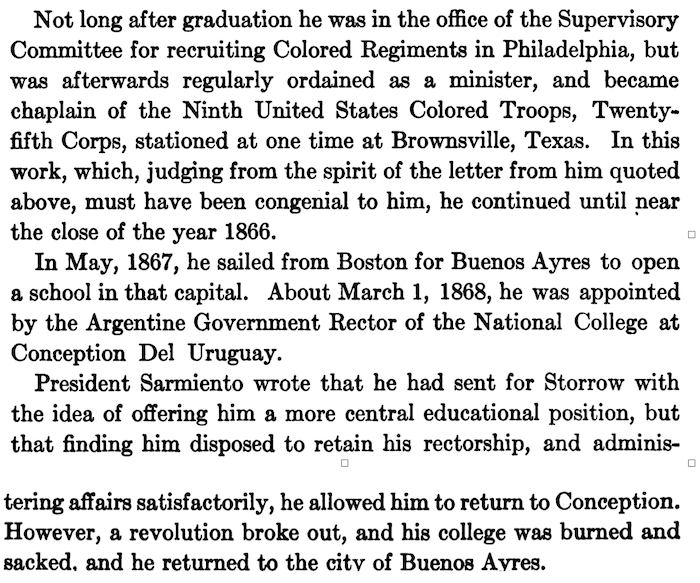
By Bill McEvoy
In honor of Memorial Day, local historian Bill McEvoy has compiled histories of some of the Civil War clergy who are buried at Mount Auburn Cemetery. This is part six of 15.
Samuel Storrow Higginson was born March 22, 1841, in Roxbury, Massachusetts. He died on April 10, 1907, of myocardial degeneration, in Milwaukee, Wisconsin.
He graduated from Harvard College with a Bachelor of Arts in 1863, and a Master of Arts in 1866. Higginson studied under Henry David Thoreau. He wrote a final tribute to Thoreau in the 1862 Harvard Review.
On February 11, 1864, he enlisted as a Chaplin, in Company S, of the United States Colored Troops 9th Infantry. He was discharged on November 26, 1866. During his service, the 9th Infantry saw action at:
The Siege of Petersburg, Battle of Chaffin’s Farm, Second Battle of Deep Bottom, Battle of Darbytown Road, Battle of Fair Oaks & Darbytown Road, and the Appomattox Campaign.
His was the First unit to enter Richmond after the surrender.
After the surrender he served at:
Moved to Brazos Santiago, Texas, Then Brownsville and the Rio Grande River, Texas, until October 1866. October 2nd, the unit was ordered to New Orleans.
The following was taken from Harvard’s 50th Anniversary of the Class of 1863:
In 1864, in his response to Class Secrectary, Arthur Lincoln included the following:
In 1864 Higginson writes to Arthur Lincoln:
“You have been troubled to get my life. Simply because I have none to write. I can look back upon but one thing that pleases me, my endeavor to be faithful to the cause of emancipation in our country. My life had been worthless save for this, and if it pleases you let me write simply that from my earliest youth, I have yearned toward a race in bondage and degradation, nor ever feared to be called an abolitionist.”

Arthur Lincoln continued in his own words:
He fitted for college with Mr. F. B. Sanborn (Harvard,1855) in Concord, Massachusetts. He came to college with a poetic temperament, and a fondness for studying nature, languages, music, artistic and philosophic subjects, sublimated by the Concord ideals, the spirit of which he was eagerly alive to by inheritance as well as by education he inclined to concern himself with the noblest and highest things. He was of a sunny disposition and enjoyed whatever was pure and of good report.
Mr. Lincoln followed:

While in South America he married first Juana Hawt Higga.
His second marriage, to Nora Ternan, took place in Boston, October 6, 1886. For a time, he was a newspaper man in that city. His health failed and for several years he lived in a national home in Milwaukee, Wisconsin, where he died on April 9, 1907.
Find the gravesites of the Civil War Clergy by entering their name here: https://www.remembermyjourney.com/Search/Cemetery/325/Map Bill McEvoy can be reached at billmcev@aol.com